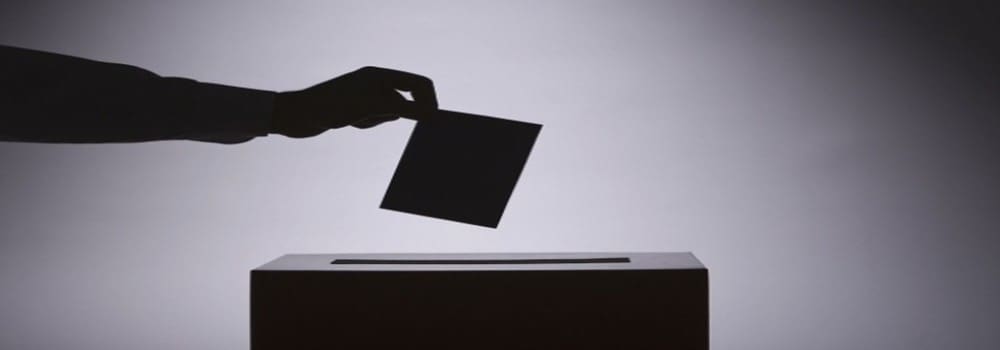This article has been updated since publishing.
With hundreds of suspicious mail-in ballots now reviewed and counted, results in three close Dallas County elections remain unchanged. But the criminal investigation into the allegedly-forged mail ballots continues. That investigation is also revealing flaws in the mail ballot process that make such fraud hard to detect.
Dallas County’s elections office reviewed and counted over 700 potentially fraudulent mail ballots that were set aside by the district attorney’s office for extra scrutiny. But election officials acknowledged that not all the suspicious ballot signatures were completely verified – and when application and ballot signatures match, Texas Election Code doesn’t require them to be.
Under current law, the only two signatures routinely looked at to authenticate mail-in ballots are the ones on the ballot application and the envelope containing the ballot itself. But if signatures on both the ballot application and the ballot are forged by the same person, then the signatures will match – even though both are fraudulent.
Texas lawmakers who want to improve the integrity of, and confidence in, voting by mail need to look at reforming this process.
An “off the charts” number of voter fraud allegations in the May 6 elections prompted the Dallas County District Attorney’s office to open a criminal investigation into voters’ complaints of forged mail ballot applications and vote harvesting.
Assistant District Attorney Andy Chatham said the investigation would focus on West Dallas, where there have long been “persistent rumors” of voter fraud, specifically in city council Districts 2 and 6.
Chatham asked for, and received, a judge’s permission to sequester hundreds of “suspicious” mail ballots from those districts before they were counted, and to have any ballots determined to be fraudulent turned over to the DA’s office. As of Monday morning, 40 ballots had already been rejected as fraudulent.
Those ballots will be sent to the Southwestern Institute of Forensic Sciences, said Chatham, where DNA and fingerprint testing may reveal who harvested the ballots.
“What matters to me is getting the ballots, looking at them and finding evidence of fraud, finding evidence of wrongdoing, and finding out who’s responsible for that,” Chatham said.
Since April, elderly residents of West Dallas and Grand Prairie have been complaining about receiving mail-in ballots they didn’t request. Follow-up by the Dallas County Elections office revealed that many ballot application signatures had been forged. And that presents a problem for the ballot signature review board attempting to authenticate the suspicious ballots.
As Jose Plata, a poll watcher for a Dallas candidate, observed,
“Our problem with these ballots is that someone forged names. They forged it on the ballot. They forged it on the application.”
Again, if the same person forges signatures on both the ballot application and the ballot itself, then the signatures will match – even though both are fraudulent.
There is currently no process or legal safeguard in Texas’ election code to ensure this type of forgery is routinely looked for and caught.
Dallas County Elections Administrator Toni Pippins-Poole confirmed earlier this week that some sequestered ballots were processed without reviewers comparing them to voter registration applications. That’s a common practice in questionable cases to verify if ballot signatures match real voters’ signatures. Thus, it’s unclear how many fraudulent ballots may have been incorrectly verified as valid and counted.
Fraudulent ballots could have affected the final outcomes of three very close local elections in parts of the county where suspicious vote harvesting activities were reported.
As of Thursday morning, just 47 votes separated second and third-place finishers in the Dallas City Council District 6 race. Omar Narvaez led Alex Dickey by 536 to 489 votes. The final vote tally shows Narvaez still in second place, so he will face incumbent Monica Alonzo in the June 10 runoff.
District 6 was the source of hundreds of complaints of forged mail ballot applications made by elderly West Dallas voters in this election cycle. More than 45 percent of votes cast in the district’s May race were mail-in ballots, an unusually high share that immediately raises suspicion. Dozens of fraudulent mail ballots were also reportedly cast there in November 2016.
In Dallas’ District 2 school board contest, challenger Lori Kirkpatrick was just 15 votes away from a majority that would save her from a runoff with incumbent Dustin Marshall. Unofficial results showed Kirkpatrick with 5,233 of the 10,494 votes cast (49.9 percent), while Marshall got 4,938 votes (47.1 percent) in the three-way race. Updated results show Kirkpatrick losing ground slightly, to 49.8 percent, so the June 10 runoff is on. Marshall is endorsed by Texans for Fiscal Responsibility, along with a broad pro-reform coalition.
In Grand Prairie, dozens of elderly residents reported the same vote-harvesting scheme seen in West Dallas. Early election results there could have reversed, once the fraudulent votes were sorted out. Just 30 votes separated Mike Del Bosque and incumbent Lila Thorn in the City Council District 3 race. Those vote totals were unaffected by the sequestered ballots.
Dallas isn’t the only Texas county plagued by fraudulent mail ballot harvesting schemes. Texas Scorecard previously reported on criminal complaints filed by Direct Action Texas in both Dallas County and Tarrant County. The Tarrant County complaint resulted in what’s believed to be the largest voter fraud investigation by the Attorney General in state history.
People who benefit from voter fraud often claim that it simply “doesn’t exist,” or that it’s not widespread enough to affect the outcomes of elections. Investigations into present and past vote harvesting schemes prove the deniers wrong. They also demonstrate why the Texas Legislature needs to pass long-overdue election integrity reforms that discourage criminals from stealing votes from the elderly, minorities, and any other voter populations being targeted.





